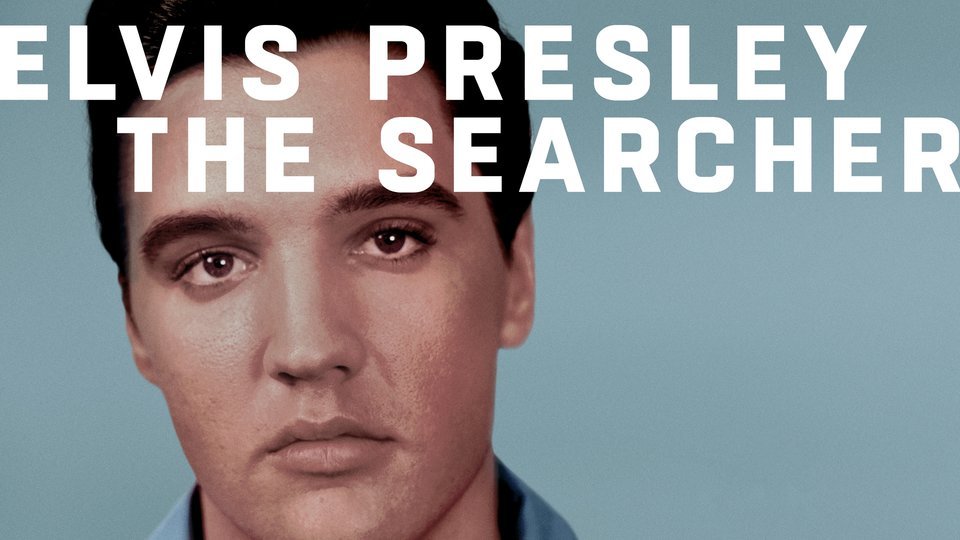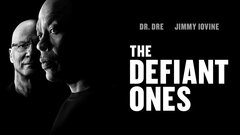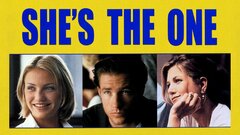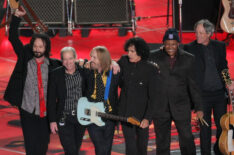Singer-songwriter Tom Petty was the driving force behind the Heartbreakers, an impeccable and versatile group that generated dozens of Top 20 hits, including "Don't Do Me Like That," "Refugee," "You Got Lucky," "Don't Come Around Here No More," and "Mary Jane's Last Dance," among others that became touchstones of both Top 40 and AOR radio play. Petty's musical style derived inspiration from '60s-era garage rock and pop from both sides of the Atlantic and delivered his urgent, biting songs with a heavy serving of Southern soul and Petty's own signature, Dylan-esque vocals.
Arriving on the music scene during the late 1970s, the Heartbreakers were frequently slotted with punk and New Wave acts, though their sound also found favor with classic rock fans. Tom Petty and the Heartbreakers tenaciously carved out a career for the next decade before reaching the top of the rock pile in the late 1980s. Petty himself would step away from the band to collaborate in the all-star Traveling Wilburys before releasing 1989's Full Moon Fever, the highest charting record of his career.
In the nearly three decades that followed, Petty would balance his time between solo efforts and reunions with the Heartbreakers while never losing sight of his rock-n-roll ideals. In doing so, he earned the undying respect of popular music fans for generations. His October 2, 2017 death from a heart attack at his Malibu home at the age of 66, only a week after finishing the Heartbreakers' 40th anniversary tour (which he had already hinted would be his last extensive road outing) shocked fans and peers around the world.
Thomas Earl Petty was born in Gainesville, Florida on Oct. 20, 1950. At the age of 11, he met Elvis Presley through his uncle, who was working on the set of the film "Follow That Dream" (1962) in nearby Ocala. From that point on, his primary passion was music. Like so many rock-n-roll performers of his generation, he was inspired to form a band after seeing the Beatles on "The Ed Sullivan Show" (CBS, 1948-1971) in 1964, and began taking guitar lessons from, among others, Don Felder, who later found fame as a member of the Eagles.
Petty soon dropped out of school to form the Epics, which in 1967 evolved into Mudcrutch. The group, which counted future Heartbreakers Mike Campbell and Benmont Tench among its members, eventually headed West to try their hand at landing a recording contract. They eventually signed with Shelter Records, a label founded by Leon Russell and Moody Blues producer Denny Cordell, but Mudcrutch broke up shortly afterwards. Cordell pushed Petty to record as a solo act, but the singer was reluctant to step into the spotlight. For a period, Petty fronted a number of bands before reuniting with Campbell and Tench in 1975. With bassist Ron Blair and drummer Stan Lynch, they formed the original lineup of the Heartbreakers, which released their debut album, Tom Petty & the Heartbreakers on Shelter in 1977.
American audiences were slow to recognize Petty's talents, but British audiences immediately warmed to him when the Heartbreakers opened for Nils Lofgren on a 1978 tour of the United Kingdom. The nascent punk movement also briefly claimed Petty as one of their own, given their shared fondness for '60s pop and rock hits, plus the fact that Petty was wearing a black leather jacket and a bullet belt on the album's sleeve photo. The overseas success spurred Shelter to heavily promote the album's first single, "Breakdown," which broke the Top 40 in 1978. Its second single, "American Girl," did not fare as well, though its chugging Bo Diddley beat and Petty's urgent, nasal vocals helped to make it a staple of FM radio. The momentum generated by both singles led to a second album, 1978's You're Gonna Get It!, which achieved gold sales status on the strength of its singles "Listen to Her Heart" and "I Need to Know." Unfortunately, the momentum generated by both albums was brought to a halt by the sale of Shelter's parent company, ABC Records, to MCA. Petty was unable to come to terms with his new label, and was forced to file for bankruptcy in 1979.
He soon settled into an agreement with MCA and released the Heartbreakers' third release, Damn the Torpedoes on the MCA affiliate Backstreet Records in late 1979. The record proved to be Petty's breakthrough release, earning universally positive reviews and producing two Top 20 hits, "Don't Do Me Like That" and "Refugee." The album itself broke the Top 5 on the Billboard records chart, and would eventually sell nearly two million copies. An appearance at Madison Square Garden that year as part of the Musicians United for Safe Energy's (MUSE) "No Nukes" concerts solidified the Heartbreakers' standing in the rock mainstream. But label problems would once again threaten to undo much of their hard work. While preparing to release their fourth album, Hard Promises, Petty caught wind that MCA was planning to sell the album for the list price of $9.98, which at the time was an exorbitant cost for an LP. He refused to comply with the increase and threatened to withhold the record from release while organizing a grass roots protest among his fans, even threatening to call the album $8.98 at one point. MCA eventually relented, and the album went platinum, scoring a Top 20 hit with "The Waiting" while the band enjoyed a simultaneous Top 5 hit with "Stop Draggin' My Heart Around," a duet with Stevie Nicks featured on her solo album, Bella Donna. Petty also had the opportunity to work with one of his musical idols, '60s rocker Del Shannon, by producing his Top 40 album Drop Down and Get Me (1981).
Bassist Ron Blair left the Heartbreakers during the recording of the band's fifth album, Long After Dark. He was replaced by Howie Epstein, whose harmony vocals became an integral part of the Heartbreakers' sound. The album became their third platinum release and featured the twang-heavy Top 20 hit "You Got Lucky," which earned frequent airplay on the then-fledgling MTV network, as well as another fan favorite, "Change of Heart." Petty would spend the next three years working on Southern Accents (1985), his attempt to explore other musical genres with the Heartbreakers. The recording sessions, overseen by producer Dave Stewart of Eurythmics, were fraught with tension due to the band members' disagreements over the direction of the album; at one point, a frustrated Petty broke his hand after punching a wall, which required surgery for him to play guitar again.
Despite the conflict, Southern Accents reached the Top 10 on the album charts, and produced a Top 20 single with the psychedelia-tinged "Don't Come Around Here No More," which also begat an acclaimed music video inspired by Alice in Wonderland. Petty and the Heartbreakers would next serve as Bob Dylan's band for the 1986 True Confessions tour. Dylan and Petty would later compose the aggressive "Jammin' Me," the lead single from Let Me Up (I've Had Enough) (1987). The single topped the Mainstream Rock Charts for a month, but the LP received only modest praise. That same year, Petty's Encino, California home and much of his belongings were destroyed in a devastating fire. While the Heartbreakers appeared to be at a creative and commercial ebb, Petty himself was entering one of the most successful points in his career with the informal supergroup the Traveling Wilburys, which featured Dylan, George Harrison, Roy Orbison and Jeff Lynne of ELO among its members.
To the surprise of many, the resulting album, Traveling Wilburys, Vol. 1 (1988), became one of the biggest hits of the year, earning a Grammy for Best Rock Performance by a Duo or Group with Vocals and reaching No. 3 on the Billboard album chart. The Wilburys project gave each of its members a considerable boost on the charts, including a full-fledged comeback for Orbison, and each of its respective members would contribute to each other's solo projects. Petty's Full Moon Fever (1989) featured all of the Wilburys save for Dylan, as well as most of the Heartbreakers. A polished pop record that favored Petty's British Invasion influences over the garage and Southern rock that fueled the Heartbreakers, it became his highest-charting recorded effort, reaching No. 3 on the album charts and producing three hit singles, including the anthemic "I Won't Back Down" and "Runnin' Down a Dream."
After completing Traveling Wilburys Vol. 3 in the wake of Roy Orbison's sudden death in 1990, Petty reunited with the Heartbreakers for Into the Great White Open (1991), which followed the sonic template of Full Moon Fever. It too reached significant heights, earning platinum sales status thanks to the title track and the No. 1 single "Learning to Fly." Petty parted ways with MCA Records in 1993 by releasing Greatest Hits, which featured two new songs, a cover of Thunderclap Newman's "Something in the Air," and the dark-tinged "Mary Jane's Last Dance," which became another chart-topping single. These two songs would represent the Heartbreakers' last collaboration with Stan Lynch, who left the group to become a successful songwriter.
The band soon moved to Warner Bros., where Petty had recorded with the Wilburys before secretly signing a $20 million deal to join the label back in 1989 after the completion of his tenure with MCA. Petty's next effort for their new label was his second solo album, the Rick Rubin-produced Wildflowers (1994), which generated massive sales and spawned three hit singles, including "You Don't Know How It Feels" and "It's Good to Be King." Petty would busy himself with various musical projects, including a soundtrack for the Edward Burns film "She's the One" (1996) and a collaboration with Johnny Cash on the Grammy-winning Unchained (1996), the formidable country icon's second release for Rubin's American Recordings series. Though he had flirted with acting in features like "FM" (1978) and on "The Larry Sanders Show" (HBO, 1992-98), Petty earned his most substantive screen time as the mayor of a post-apocalyptic encampment in Kevin Costner's ill-fated "The Postman" (1997). He also had a recurring role in the animated sitcom "King of the Hill" (Fox 1997-2009), playing Elroy "Lucky" Kleinschmidt, the well-meaning but aimless husband of Luanne Platter (Brittany Murphy).
Petty and the Heartbreakers returned in 1999 with Echo, which marked a downward turn in the response to their new material by reaching only the No. 10 spot on the Billboard chart. The album came during a period of intense personal and professional changes for Petty, who was going through a painful divorce while writing songs for the record. (Later, Warren Zanes' authorized biography Petty revealed that Petty briefly became addicted to heroin during this period.) It also marked the final contribution of Howie Epstein, whose own spiraling drug issues resulted in his death from an overdose in 2003. Petty would later exclude any songs from the album from the band's live sets due to the sensitive nature of their conception.
Three years would pass before Petty and the Heartbreakers would record another album. The result was The Last DJ (2002), a scathing diatribe on the greed and hypocrisy inherent in the music business that reached No. 9 on the Billboard 200. Bassist Ron Blair soon returned to the Heartbreakers fold in time for the band to be inducted into the Rock and Roll Hall of Fame in 2002. In 2006, the band celebrated their 30th anniversary by launching a major tour that would feature guest performances by the likes of Stevie Nicks, Eddie Vedder, the Black Crowes and the Allman Brothers.
That same year, Petty released another solo album, Highway Companion, which reunited him with Jeff Lynne. It reached No. 4 on the album charts, his highest placement since 1991. During this period, director Peter Bogdanovich began filming the band for a documentary titled "Runnin' Down a Dream," which was released in 2007. That summer, Petty, Campbell and Tench reunited with their old bandmates in Mudcrutch to release a self-titled album, which preceded a short California tour in 2008. In February of that year, Petty and the Heartbreakers reunited to perform during the halftime show at Super Bowl XLII before launching a North American tour. The band dug deep into their concert archives to release 2009's Live Anthology, an exhaustive four-disc box set of live performance culled from their three-decade-plus career. A new Heartbreakers album, Mojo (2010), reached No. 2 on the Billboard album charts, and sent the band out on a summer tour through North America that year.
Following the release of another Heartbreakers album, Hypnotic Eye, in 2014, Mudcrutch reconvened for a follow-up album, Mudcrutch 2 (2016). During this period, Petty continued his lifelong love affair with radio by hosting a station on the Sirius/XM satellite network. In 2017, Tom Petty and the Heartbreakers embarked on an extensive tour to celebrate the band's 40th anniversary. Petty hinted in interviews that it would be the band's final major outing on the road, pointing out that he had a young grandchild and didn't want to spend too much time away from her. On Monday, October 2, 2017, less than a week after the tour's concluding three-night-stand at the Hollywood Bowl, Tom Petty was found at his Malibu home unresponsive and in full cardiac arrest. After being rushed to the hospital, he was found to have no vital signs and was taken off life support the following day. He was 66 years old.






















































